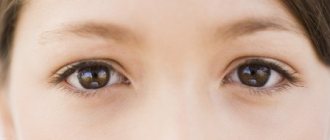Causes of depressive neurosis
Psychologists call the body's predisposition and environmental influences the most significant factors contributing to the appearance of this disorder. In the course of the research, a complex of personal characteristics inherent in people prone to depressive neurosis was compiled. These features include:
- straightforwardness;
- suppression of emotions;
- increased activity;
- a strong sense of duty and responsibility;
- rigidity of mental processes;
- taking all life situations seriously;
- low resistance to shocks and experiences.
For the disease to manifest itself, a trigger mechanism is needed. Often they find themselves in traumatic situations such as financial problems, family troubles, or difficulties at work. Doctors also identify two groups of factors that can trigger the development of the pathological process.
- In the first case, the patient’s whole life becomes involved in the development of the disease, when it begins to seem to him that there are many problems in all its spheres.
- In the second case, the disease develops due to the isolation of emotional experiences. A person constantly hides his emotions from others, which ultimately leads to internal conflict.
Causes of neurotic depression
The development of a depressive state is due to the depletion of psychological defense mechanisms that are triggered by the nervous system in stressful situations. Psychotraumatic factors and constitutional characteristics of the individual can contribute to the formation of the disease from an early age.
The basis on which depressive neurotic disorders subsequently develop may be a lack of interaction with parents, suppression of the individual by peers or loved ones. Psychiatrists have noted cases where the development of a mental disorder occurs against the background of decreased motor activity and the absence of positive emotions and experiences.
Symptoms of depressive neurosis
Classic manifestations of depressive neurosis will be lethargy, decreased activity, slower speech and thinking, and depressed mood. At the very beginning of the disease, the patient usually complains of symptoms such as general weakness and low mood. Vegetative-somatic signs of the disease are also possible: rapid heartbeat, dizziness, changes in blood pressure, loss of appetite. As a rule, after the appearance of all these symptoms, the patient decides to visit a general practitioner.
Symptoms after therapy
After completing a course of symptomatic therapy, patients do not always begin to feel better. Often their health deteriorates, a feeling of weakness appears, persistent hypotension develops, and spastic colitis occurs. The patient’s emotional state also worsens: he is constantly sad, his mood worsens, and there are practically no positive emotions. Symptoms such as slowed thinking, decreased motor activity, and poor facial expressions gradually appear.
In almost all cases of depressive neurosis, patients experience sleep disturbances. They manifest themselves as night awakenings and difficulty falling asleep. Immediately after waking up, patients with depressive neurosis feel very tired, weak and overwhelmed. Some also experience anxiety attacks, tantrums, and even phobias.
If we compare depressive neurosis with depression, its symptoms are less pronounced. This is due to the fact that patients usually retain the ability to soberly assess what is happening, do not lose self-control, and do not withdraw into themselves. It is also important that they do not have suicidal thoughts. Moreover, they are quite optimistic about various life situations. That is why the treatment of depressive neurosis is many times simpler than the treatment of depression.
Treatment methods
To achieve results, treatment must be carried out psychotherapeutically, but also with medication, and also use physiotherapeutic techniques.
Neurotic depression is most often treated by persuasion. During therapy, a logical study of the very situation that provoked this condition is carried out and the goal of the study is to change the patient’s attitude to the situation. Sometimes self-hypnosis is also used, which consists of pronouncing certain phrases to the patient that will help him form a new, personal view of the current situation.
Drug treatment involves the patient using antidepressants. Also, if the specific course of the disease requires it, antipsychotics, nootropics, psychostimulants, sedatives and tranquilizers can be prescribed. But it is impossible to achieve complete recovery of patients using only medications; parallel psychotherapy is required.
Physiotherapeutic methods of influence that help patients cope with depressive neurosis are the following procedures:
- electrosleep;
- massage: cervical-collar area; general massage (acupressure, phytomassage, classical, aromatherapy, Ayurvedic);
- reflexology;
- hydrotherapy.
What the doctor prescribes depends on the individual characteristics of the patient, so a consultation with a physiotherapist is mandatory. After examining and communicating with the patient, they will be prescribed all the necessary physiotherapeutic procedures, which in turn will have a beneficial effect on the psychological and physiological state of the patient, and will help to quickly cope with the problem.
Diagnosis of depressive neurosis
In order to make a correct diagnosis, the doctor must first carefully collect anamnesis. In this case, special attention is paid to identifying hereditary burden. That is, the doctor should collect as much information as possible about the somatic and mental illnesses of the patient’s relatives, and about family relationships. The doctor must also find out in detail exactly what circumstances preceded the onset of the disease.
The diagnosis of “depressive neurosis” is made in the following cases:
- the patient assesses his mental state as unacceptable and alien to him, he is bothered by mood swings and other symptoms;
- the ability to assess one’s own state and mental reactions is not impaired;
- the patient’s behavior is normal and does not violate generally accepted norms;
- the disorder is persistent and is not a common reaction to a stressful situation.
Sometimes it is difficult to make a diagnosis, since the symptoms of depressive neurosis are similar to the accompanying signs of somatic diseases. That is why, if you suspect depressive neurosis, it is necessary to refer the patient for a consultation with a neuropsychiatrist. In order to definitely exclude the somatic etiology of the disease, consultations with a gastroenterologist and cardiologist, ultrasound, ECG, and EEG will be required.
Psychological impact on depressive neurosis
The most used methods of treating the disease are suggestion, self-hypnosis, and persuasion. The goal of persuasion treatment is to develop in the patient new views and a completely new assessment of traumatic situations that he previously could not cope with on his own. Suggestion, in turn, should evoke in the patient ideas, sensations and even volitional impulses without the active participation of the individual in this process. Self-hypnosis is indicated for eliminating sleep disorders, phobias, and expectation neuroses.
Procedural treatment of depressive neurosis
Treatment tactics for depressive neurosis also include the appointment of physiotherapeutic procedures. Methods such as therapeutic exercises, electrosleep, darsonval, hydrotherapy, and reflexology have shown their effectiveness. Classic, aromatherapy, Ayurvedic, acupressure massage will also be useful. To improve well-being and get rid of bad mood, patients are also recommended to do yoga, walks in the fresh air, and meditation.
As for treatment tactics, it usually involves three stages:
- The first stage takes about 6-12 weeks. During this time, the doctor records the most striking signs of the disease.
- The second stage lasts about 4-9 weeks. During this period, the patient takes antidepressants, undergoes psychotherapy and attends physiotherapeutic procedures. Thanks to this treatment, his health is gradually returning to normal.
- The third stage involves maintenance therapy to prevent relapses of the disease.
Depressive neurosis is considered one of the most common mental illnesses. Making a diagnosis from experienced specialists usually does not take much time. The success of treating a pathological condition depends largely on the correct combination of drug therapy, physiotherapy and psychotherapy.
Neurotic depression: ICD-10
The International Classification of Diseases, 10th revision, contains section F34: persistent mood disorders, which are characterized by moderate severity and the development of the disorder over several years; as the disease progresses, the patient may become unable to work.
Neurotic depression is included in this section as part of subsection F34.1 Dysthymia. This mental disorder is described by experts as a chronic depressive mood, individual episodes of which differ in their short duration.
Depression of a neurotic nature has several varieties: mono- and bipolar, situational, endogenous and reactive. A person suffering from these mental disorders needs complex treatment, including psychotherapy, physiotherapy, massages and physical exercises. Psychiatrists, together with other specialists at the Yusupov Hospital, have developed effective treatment programs for various types of depressive disorders.
Prognosis of depressive neurosis
Depressive neurosis is not as serious an illness as depression. Therefore, the prognosis for patients is favorable. The patient has every chance of recovery and return to a full life. However, if the disease is neglected and treatment is not started in a timely manner, it may transform into a more complex and severe disease - neurotic personality disorder.
Psychologists advise avoiding depressive neurosis in every possible way, since its treatment can take a long time and cause a lot of harm to a person’s mental health. If there are prerequisites for this disease, the following preventive measures should be followed:
- observe the correct work and rest schedule;
- promptly treat somatic diseases;
- avoid emotional overload;
- resolve family conflicts.
Neurotic depression: treatment at the Yusupov Hospital
The Yusupov Multidisciplinary Hospital specializes in the treatment of mental disorders, in particular neurological depression. An important condition for a patient’s stay in the Yusupov Hospital is confidentiality, so data about patients is not transmitted to workplaces and dispensaries.
Treatment of neurotic depression at the Yusupov Hospital is possible both in an inpatient and outpatient setting. The modern approach to the treatment of mental disorders involves the use of psychotherapy, medication, art therapy and other techniques. Acute manifestations of depression are eliminated with the use of tranquilizers and antidepressants; psychotherapy sessions can eliminate residual symptoms.
Psychiatrists at the Yusupov Hospital, together with patients, are searching for the problem that provoked the development of pathology. Each patient is considered by specialists as a unique individual, part of society and family. The advantage of treating depressive conditions at the Yusupov Hospital is the use of medications that have the least burden on the body.
The approach used by psychiatrists in helping patients suffering from depression can improve their quality of life. Neurotic depression, the prognosis and treatment of which are interconnected, requires timely treatment. To make an appointment with a psychiatrist and obtain background information, you should contact the staff of the Yusupov Hospital by phone.










